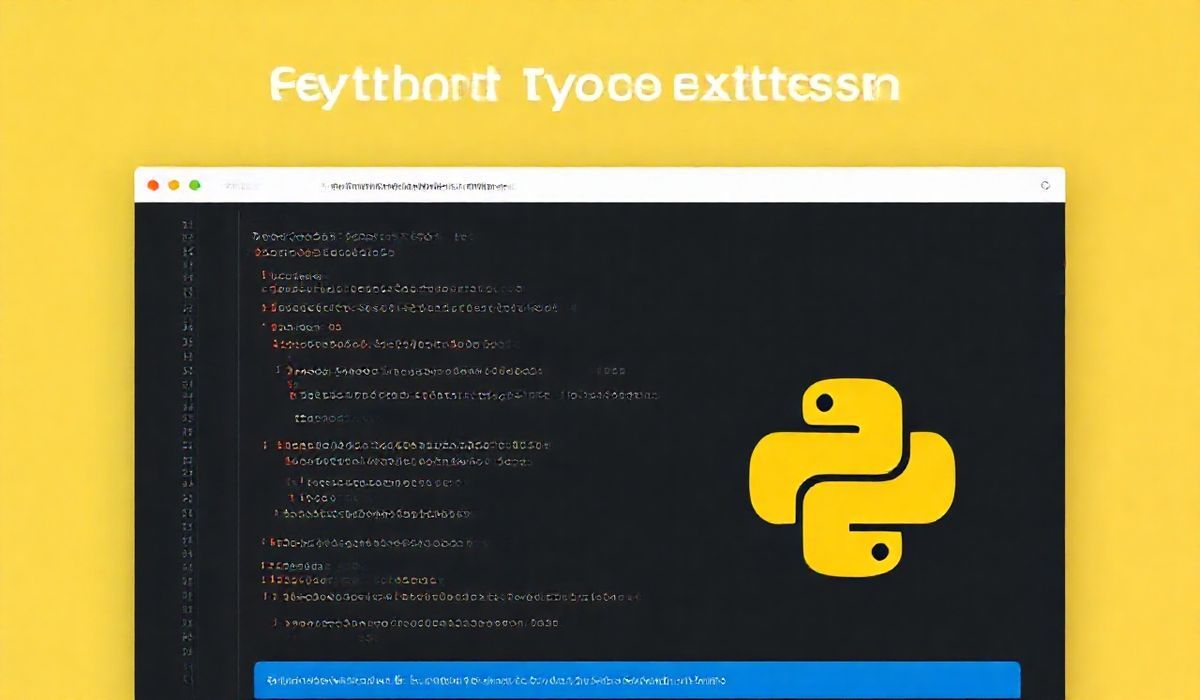Enhance Your Python Code with Typing Extensions
The typing-extensions module is an essential library for Python developers who want to use advanced type annotations that are not yet standard in all Python versions. It provides a range of additional type hinting features, enabling you to write cleaner, safer, and more maintainable code. In this article, we’ll dive deep into the APIs provided by typing-extensions and demonstrate their usage through code snippets and a simple app example.
Key Features and APIs in Typing Extensions
1. TypedDict
The TypedDict API allows you to define dictionaries with a specific structure, making your code more robust and self-documenting.
from typing_extensions import TypedDict
class User(TypedDict):
id: int
name: str
age: int
user: User = {"id": 1, "name": "Alice", "age": 30}
With TypedDict, Python will validate that your dictionary adheres to the defined structure.
2. Literal
The Literal type is used to specify that a value must be one of a specific set of literal values.
from typing_extensions import Literal
def get_status(status: Literal["success", "error", "pending"]) -> str:
return f"Status is: {status}"
print(get_status("success"))
3. Protocol
The Protocol type supports defining structural subtyping, allowing you to specify required methods and attributes without fully implementing classes.
from typing_extensions import Protocol
class Greeter(Protocol):
def greet(self) -> str:
pass
class SimpleGreeter:
def greet(self) -> str:
return "Hello!"
def say_hello(greeter: Greeter):
print(greeter.greet())
greeter = SimpleGreeter()
say_hello(greeter)
4. Annotated
The Annotated type lets you attach metadata to a type. It’s especially useful in frameworks or libraries that can make use of the annotations.
from typing_extensions import Annotated
Age = Annotated[int, "Age must be a positive integer"]
def set_age(age: Age):
if age <= 0:
raise ValueError("Age must be positive")
5. Final
You can use the Final type to indicate that a variable, method, or class should not be overridden.
from typing_extensions import Final
MAX_USERS: Final = 100 # Cannot be changed
Building a Simple App with Typing Extensions
Let’s create a small application that uses several APIs from typing-extensions.
Employee Management System
We will develop a simple system to manage employee records.
from typing_extensions import TypedDict, Protocol, Literal
class Employee(TypedDict):
id: int
name: str
role: Literal["developer", "manager", "designer"]
class Greeter(Protocol):
def greet(self) -> str:
pass
class EmployeeGreeter:
def greet(self) -> str:
return "Welcome to the Employee Management System!"
def print_employee_details(employee: Employee):
print(f"ID: {employee['id']}, Name: {employee['name']}, Role: {employee['role']}")
# Initialize system
greeter = EmployeeGreeter()
print(greeter.greet())
# Add employee
employee: Employee = {"id": 101, "name": "John Doe", "role": "developer"}
print_employee_details(employee)
This simple app demonstrates the combined power of TypedDict, Literal, and Protocol from typing-extensions, ensuring stricter type checking and better code maintainability.
Conclusion
Typing extensions is a powerful library that bridges the gap between modern Python typing features and earlier Python versions. Whether you’re working on large-scale applications or simple scripts, these typing tools can help document and validate your code effectively. Start incorporating typing-extensions today to take advantage of its features!




